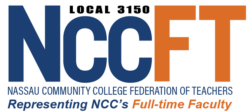Two recent articles in the December 3, 2010 edition of The Chronicle of Higher Education galvanize a point made by The Chronicle repeatedly year after year for as long as I have read it. Simply put, it does, indeed, pay great dividends for students to earn an education in the liberal arts.
Why is this so? In an essay by Robin Wilson entitled, “Master’s in English: Will Mow Lawns” our author makes the case that in the liberal arts area jobs are, at best, uncertain in today’s difficult economic climate. But do students really focus so much on this data? Although some colleges like Ohio State University and the University at Michigan are starting to track their Ph.D. graduates and their work places, most incoming Ph.D. students, we are told, focus more on how they fit into the programs they ultimately choose. These students want “to delve into a discipline” (A9). One first year Ph.D. student at Washington U. said “You are not learning to do one specific thing … it is more of a skill set” (A9). He went on to add, “You learn how to think, and you can apply that to a broad set of circumstances” (A9).
In this fast-paced post-modern global world might it not be a good idea to have undergraduate school students ready and able to handle multi-tasking and critical thinking skills once they embark upon their career paths whatever they may be?
In keeping with this idea of developing ways of thinking that does not include simple career path jobs (but does not exclude them either) another essay by Yash Gupta, Dean of Carey Business School at the Johns Hopkins University, argues in “For Business Schools, Economic Crisis Points Way to Change” that business schools must even adapt to this new global world. And it just so happens that he suggests that business schools do NOT just stick to what he refers to as the “science” of business schools which includes accounting, marketing and finance” (A29). He suggests that the students of today focus on what he describes as the “art” of business. This includes: intellectual flexibility, cultural literacy, ethics, ability to communicate, creativity and a collaborate outlook (A29).
It sure sounds to me like a Business School Dean wants us to keep the liberal arts tradition alive and well in our graduate school programs and by implication at our two year and four year colleges and universities.
Nassau Community College has in its rich history not only encouraged our students to seek a liberal arts education and career training but has also embraced the idea that the two are not mutually exclusive. We wish to continue on our path to providing the residents of Long Island with a high quality, affordable education.
-Mike Anzelone, Secretary, NCCFT
